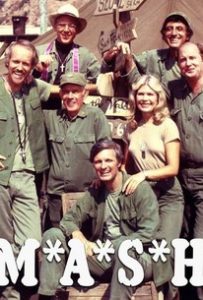John Alfred Mandel (November 23, 1925 – June 29, 2020) was an American composer and arranger of popular songs, film music and jazz. The musicians he worked with include Count Basie, Frank Sinatra, Peggy Lee, Anita O’Day, Barbra Streisand, Tony Bennett, Diane Schuur and Shirley Horn. He won five Grammy Awards – from 17 nominations; his first nomination was for his debut film score for the multi-nominated 1958 film I Want to Live!.
Mandel was born in Manhattan on November 23, 1925. His father, Alfred, was a garment manufacturer who ran Mandel & Cash; his mother, Hannah (Hart-Rubin), had aimed to be an opera singer and discovered her son had perfect pitch at the age of five. His family was Jewish. They moved to Los Angeles in 1934, after his father’s business collapsed during the Great Depression. Mandel was given piano lessons, but switched to the trumpet and later the trombone.
Mandel studied at the Manhattan School of Music and the Juilliard School. In 1943, he played the trumpet with jazz violinist Joe Venuti. The following year, he worked with Billy Rogers and played trombone in the bands of Boyd Raeburn, Jimmy Dorsey, Buddy Rich, Georgie Auld and Chubby Jackson. In 1949 he accompanied the singer June Christy in the orchestra of Bob Cooper. From 1951 until 1953 he played and arranged music in Elliot Lawrence’s orchestra, and in 1953 with Count Basie. He subsequently resided in Los Angeles, where he played the bass trumpet for Zoot Sims.
A 1944 Band graduate of New York Military Academy, in Cornwall-on-Hudson, New York, he wrote jazz compositions including “Not Really the Blues” for Woody Herman in 1949, “Hershey Bar” (1950) and “Pot Luck” (1953) for Stan Getz, “Straight Life” (1953) and “Low Life” (1956) for Count Basie, as well as “Tommyhawk” (1954) for Chet Baker.
Mandel composed, conducted and arranged the music for numerous movie sound tracks. His earliest credited contribution was to I Want to Live! in 1958, which was nominated for three Grammy Awards. His other compositions include “Suicide Is Painless” (theme from the movie and TV series M*A*S*H), “Close Enough for Love”, “Emily” and “A Time for Love” (nominated for an Academy Award). He wrote numerous film scores, including the score of The Sandpiper. The love theme for that film, “The Shadow of Your Smile”, which he co-wrote with Paul Francis Webster, won the 1965 Academy Award for Best Original Song and the Grammy Award for Song of the Year in 1966.
Mandel performed an interpretation of Erik Satie’s “Gnossiennes #4 and #5” on the piano for the film Being There (1979).
He won the Grammy Award for Best Instrumental Arrangement Accompanying Vocal(s) in 1981 for Quincy Jones’s song Velas, and again in 1991 for Natalie Cole and Nat King Cole’s “Unforgettable”, and one year later once more for Shirley Horn’s album Here’s to Life.
In 2004, Mandel arranged Tony Bennett’s album The Art of Romance. Bennett and Mandel had collaborated before on Bennett’s The Movie Song Album (1966), for which Mandel arranged and conducted his songs “Emily” and “The Shadow of Your Smile”, and was also the album’s musical director.
Johnny Mandel, A Man and His Music, featuring The DIVA Jazz Orchestra and vocalist Ann Hampton Callaway was recorded live at Jazz at Lincoln Center’s Dizzy’s Club Coca-Cola in May 2010, and released by Arbors Records in March 2011.
Mandel married Lois Lee in 1959, and Martha Blanner in 1972, and had a daughter, Marissa, born in 1976. Mandel was also the cousin of fellow film composer, Miles Goodman.
Mandel was awarded an Honorary Doctorate of Music from Berklee College of Music in 1993. He was inducted to the Songwriters Hall of Fame in 2010. He was a recipient of the 2011 NEA Jazz Masters Award. He subsequently received The Grammy Trustees Award in 2018, which is awarded by The Recording Academy to “individuals who, during their careers in music, have made significant contributions, other than performance, to the field of recording”.
Mandel died on June 29, 2020, at his home in Ojai, California. He was 94, and suffered from a heart ailment.
https://en.wikipedia.org/wiki/Johnny_Mandel
.


